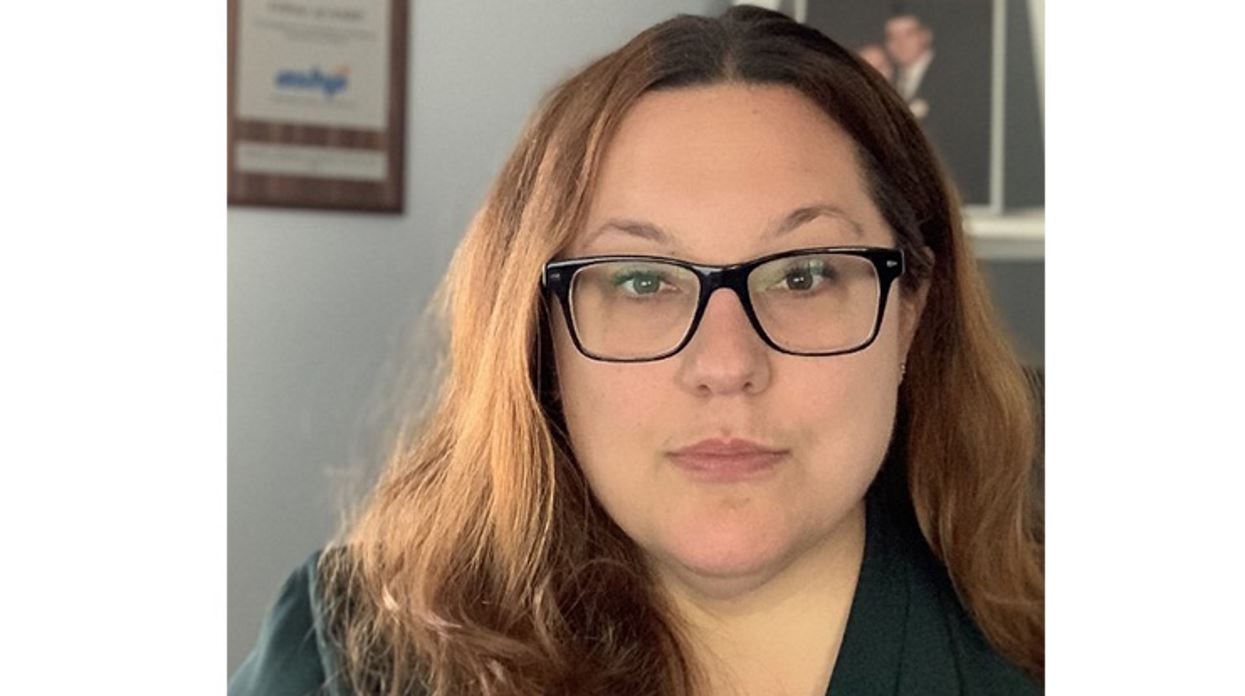
MCPHS Alum and Faculty Member Named President of the Society of Pain and Palliative Care Pharmacists

Faculty member Michele Matthew has been named the President of the Society of Pain and Palliative Care Pharmacists to expand education, training, and more.
Michele Matthews, PharmD, BCACP, CPE, FASHP, Professor & Vice Chair, Department of Pharmacy Practice at MCPHS, has been elected President of the Society of Pain and Palliative Care Pharmacists (SPPCP). She will begin a term as President-elect in January 2021 for one year, then start as President in January 2022.
The organization was founded in 2015 to promote “exceptional patient care by advancing pain and palliative pharmacists through education, development, and research in collaboration with the transdisciplinary team.” Dr. Matthews, who is a founding member, works with her colleagues to promote the important role of pharmacists in pain management and palliative care, expand postgraduate education, and collaborate with institutions and organizations to develop educational resources to enhance safe and effective patient care. She says that while there are large pharmacist organizations with special interest groups, the SPPCP devotes its full attention to pain management and palliative care pharmacy.
SPPCP has grown to more than 300 members worldwide. “We’re small and growing, but we’re fierce,” says Dr. Matthews. As president, she plans to focus on expanding membership, education, training, and mentorship. She also aims to support member research, publication, and advocacy while promoting professional well-being. Additionally, she will work to ensure SPPCP has a strong presence as pharmacists seek provider status at the national level.
Dr. Matthews has a long history with MCPHS. She started as a student in 1996 and graduated with her PharmD in 2002. After completing a pharmacy practice residency at Robert Wood Johnson University Hospital in her home state of New Jersey, she returned to her alma mater to accept a faculty position at MCPHS—Worcester/Manchester, where she had the chance to provide clinical services at an urban family medicine clinic affiliated with UMass Medical Center. She quickly realized the need for improving safe and effective chronic pain management in the ambulatory care setting. She says, “I started to gravitate towards and then became fully devoted to managing pain at that time, because it is one of the more challenging aspects of medicine. And I am always up for a challenge.” She turned that passion into action and began formalizing interprofessional approaches to pain management at her practice site. In 2009 she transitioned to MCPHS—Boston, which gave her the opportunity to integrate pain management-focused clinical pharmacy services within two ambulatory care clinics at Brigham and Women’s Hospital. In 2015 she was presented with the Excellence in Innovation Award by the Massachusetts Pharmacists Association on behalf of the National Alliance of State Pharmacy Associations, as recognition for her unique contributions to pharmacy practice as an advanced practitioner working with high-risk patients with chronic pain.
Of course, one of the biggest and most difficult recent challenges in pain management has been the opioid overdose epidemic. Dr. Matthews recognizes situations in which opioids can be an effective, appropriate, and safe pain management tool—but she certainly doesn’t think they are the answer for everyone.
She says we’ve come a long way in improving safe opioid prescribing practices in recent years, even perhaps too far in the opposite direction—some people who do truly need opioids have difficulty accessing them. She notes, “I’ve always been taught that balance is the best approach. I think that medications are a part of pain management, but they’re not always the largest part. Using non-drug interventions, making sure patients understand and are educated on what it means to have pain, making sure they’re aware of all the different options they have, and not using one approach by itself” are vital aspects of pain care.
That’s what Dr. Matthews teaches her students and other health care professionals. She also works hard to educate her patients on accepting and managing pain and about tools that extend beyond relying on medication. And she finds that the organization she’s been elected to lead helps her do those things.
“The most important things that I’ve taken away from being a member of SPPCP are collaboration and support. I feel like I’ve become a better clinician and educator by working with and learning from my colleagues, and I feel more supported in what I do. And I’m happy to have the opportunity to pay it forward by serving as President.”
More University News
MCPHS 2025: A Year in Photos
Our photos from 2025 show connection, community, and celebration.
‘Purpose and Passion’: MCPHS Manchester Students Showcase Research
From pharmacy deserts to Gen Z learning strategies, student researchers explored timely issues shaping the future of healthcare.
Lessons in Fear: A Halloween Horror Film Guide for Healthcare Students
MCPHS film professor Mikal Gaines picks five films that turn fright into insight, showing how contagion, grief, and ethical dilemmas play out on screen—and in real life.
Forsyth Dental Hygiene Students Provide Free Dental Care to Hundreds in Rhode Island
Students will volunteer again at the Massachusetts Mission of Mercy event in Worcester in November

